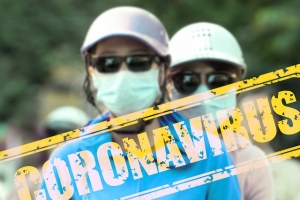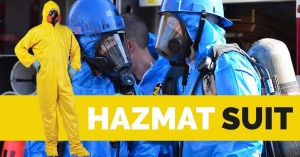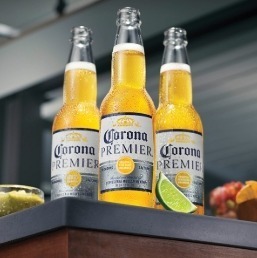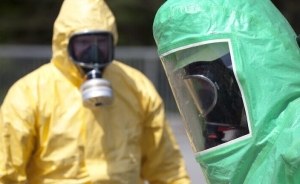
While retail sales started the year on a positive note in-store and online, the threat of Coronavirus is now having a measurable impact on retail sales in addition to the earlier impact on the supply chain from China.
Despite the smirking denials on FOX News and slow, confusing response by the White House, concern is growing markedly in the US and we can only expect that to increase with the sixth reported death from the virus in Washington State as an outcome of more US testing results.
The stock market roller coaster is just another sign of heightened investor and business concerns.
Retail sales & business impact
In addition to a Trump-China tariff hangover and supply-chain disruptions, retailers are seeing signs of lower shopping mall traffic. Coresight Research says 47% of Americans are already avoiding or limiting shopping mall visits and three-quarters of Americans say they will avoid shopping centers if the virus outbreak worsens.

Tourism is dropping quickly in many markets where it is a critical economic engine, causing layoffs and declining revenue due partly to a drop in Chinese travelers, flight restrictions, as well as overall public concern for travel abroad. Cancellation of tradeshows and numerous conferences is widespread and employee travel abroad and within the US is also showing signs of a decline.
Grocery stores have seen a jump in emergency supply sales for medical kits, bottled water, dry goods, certain foods, toilet paper and paper towels, backpacks, and other emergency-related supplies. Similar to hurricanes, earthquakes, floods, and other natural disasters, expect to see more product shortages if public concern goes off the chart.
“It has gotten crazier by the day,” a Target employee who fulfills online orders at a store in Richmond, VA told The Washington Post. “A lot of it is obviously panic-buying, people stocking up on eight gallons of water or 20 kinds of soups. Items are selling out immediately, as soon as they go up on shelves.”
CVS and Walgreens are reporting the potential shortage of hand sanitizers. Other stores are starting to run low on supplies of masks, gloves, and even over-the-counter drugs like acetaminophen. FDA Commissioner Steven Hahn reported one drug shortage because a single active ingredient is currently unavailable from suppliers in China. Many prescription and over-the-counter drugs are at similar risk of supply chain disruption.
Emergency equipment sales and prices skyrocket

Product sales of some health products like masks and sanitizing gels have seen unwarranted or excessive price increases and unavailability. Amazon has dropped more than one million products in the past several weeks that claim to cure or prevent the Coronavirus. Counterfeit masks and related products and doomsday scams are popping up everywhere online.
Sales of related products on Amazon have jumped amidst public alarm with some predictable results:
- hazmat suit sales jumped 353% and sold out by Feb 5 causing other hazmat suit sellers to raise their prices and more than doubling by some sellers
- despite CDC warnings of the lack of effectiveness, 24 million medical masks were sold on Amazon and were sold out by Jan 21; medical mask prices jumped as high as 582% in searches for medical masks and respirators on Amazon jumped by more than 17,000%
Before Amazon ran out of N95 protective masks recommended by the CDC, the price was $13.28 compared to current prices of $63.95, a 582% increase.
Corona beer sales impact

A recent small sample research survey of 737 beer drinkers by 5W Public Relations last week showed consumer intent to buy Corona beer was influenced by the perception of a connection to the Coronavirus. 38% of those surveyed said they would not buy Corona beer under current circumstances although only 4% of those who drink Corona beer said they would stop drinking the Mexican average.
Perception matters though. 14% said they would not order Corona beer publicly and 16% claimed to be confused about whether Corona beer is related to the Coronavirus. Let’s hope this isn’t a cheap publicity stunt or negative reputation strategy by a competitor beer.
For its part, Constellation Brands, owner of the popular Mexican brand, says sales have not been impacted, despite any potential negative beer drinker perceptions saying sales were up 5% in the four weeks prior to Feb 16.
Employee impact
The concern for healthcare, school and community health workers is obvious. They could also be overwhelmed not to mention at risk if testing and information sharing is not given priority as already seen in one case in California.

One virus specialist said community transmission may have been ongoing for weeks in Washington state and elsewhere on the West Coast. With six deaths now reported in Washington state, the US may begin to struggle in his response to the crisis.
“It’s interconnected communication, strategy, process, and execution failure, reflecting a serious breakdown of crisis management,” former World Health Organization advisor Jeremy Konyndyk explained on Twitter.
“Recall how, in the run-up to the Iraq war, the White House signaled preferred policy outcome so heavily that it skewed the analysis and advice it received,” said Konyndyk. “I can see similar alignment between preferences Trump and his team were signaling, and strategic posture of his crisis managers. Trump wanted to calm markets, avoid threats to his reelection, and keep the disease out of the country. He and his team made those preferences very clear. And got angry at those who deviated.”
Other employees could be infected by customers, colleagues returning from overseas trips and meetings with suppliers, unknown exposure because of a lack of wider testing in the US or simply the phenomena known as community transmission where the source is unknown.
Earlier today in Seattle, high-tech firm FS Networks, with 1500 employees, closed operation for cleaning in its new downtown high-rise HQ temporarily due to one employee being exposed to a patient who tested positive for Coronavirus. Employees are working from home and like many other employees and other companies are not traveling for business.
Current global Coronavirus status

Several weeks ago we posted about the growing number of cases in China and the start of the spread of the virus to neighboring countries and abroad. Here’s the current status courtesy of Johns Hopkins University CCSE which is tracking the Coronavirus hourly and constantly updating:
Status March 2: total confirmed cases globally is 90,284 including 80,026 in mainland China, South Korea 4335, Italy 2036, Iran 1501, other countries 705, Japan 274, France 191, Germany 159, Spain 120, Singapore 108, US 100, Hong Kong 98, Kuwait 56, Bahrain 49, Thailand 43, Taiwan 41, UK 40, Australia 30, Malaysia 29, Switzerland 27, Canada 27, Iraq 26, Norway 25, UAE 21, Netherlands 18, Austria 18, Vietnam 16, Sweden 15, Lebanon 13, Israel 10, Macau 10, San Marino 8, Belgium 8, Croatia 7, Greece 7, Ecuador 6, Oman 6, Finland 6, Mexico 6, Denmark 4, Pakistan 4, and a handful of cases in most other countries reporting. More than half (45,581) of those affected have recovered and there are 3085 deaths reported globally to date.
What can businesses and retailers do?

In a call with CDC national director of the National Center for Immunization and Respiratory Diseases’ Dr. Nancy Messonier, Dr. Lisa Koonin, Health Preparedness Partners, LLC and the National Retail Federation (NRF), business and employers were advised to take four basic steps for preparedness and prevention:
Continuity – monitor and respond to higher levels of employee absenteeism by cross-training and prioritizing services.
Protect the workplace – encourage sick employees to stay home from the workplace and consider emergency sick leave, increased daily cleaning, and disinfection, and monitor travel advisories and possibly limit employee travel where necessary.
Customer protection – reevaluate the need for face-to-face services and consider alternative ways to provide service to customers as well as providing hand sanitizers and information updates to employees and customers.
Community care – identify reliable sources of information and collaborate with other business and business organizations to reduce the impact and spread of the Coronavirus wherever possible.
More Reading

Long lines, low supplies: Coronavirus chaos sends shoppers into panic-buying mode – The Washington Post
How Bad Could It Get? Companies Gauge the Coronavirus Impact – The New York Times
Global shipping has been hit by the coronavirus. Now goods are getting stranded – CNN
China virus outbreak chilling recovery for Asian economies – Seattle Times
With most drug ingredients coming from China, FDA says shortages have begun – LA Times
Coronavirus Briefing: Coresight Research survey data suggests US malls will be hit hard if outbreak worsens – Coresight Research
Chinese manufacturing hits record low amid coronavirus outbreak –BBC
Coronavirus hits keep on coming – RSR Research
US stores start running low on masks, gloves, hand sanitizer, and more amid growing fears of coronavirus – Los Angeles Times
Hazmat suit photo courtesy of Safety Gear Pro

